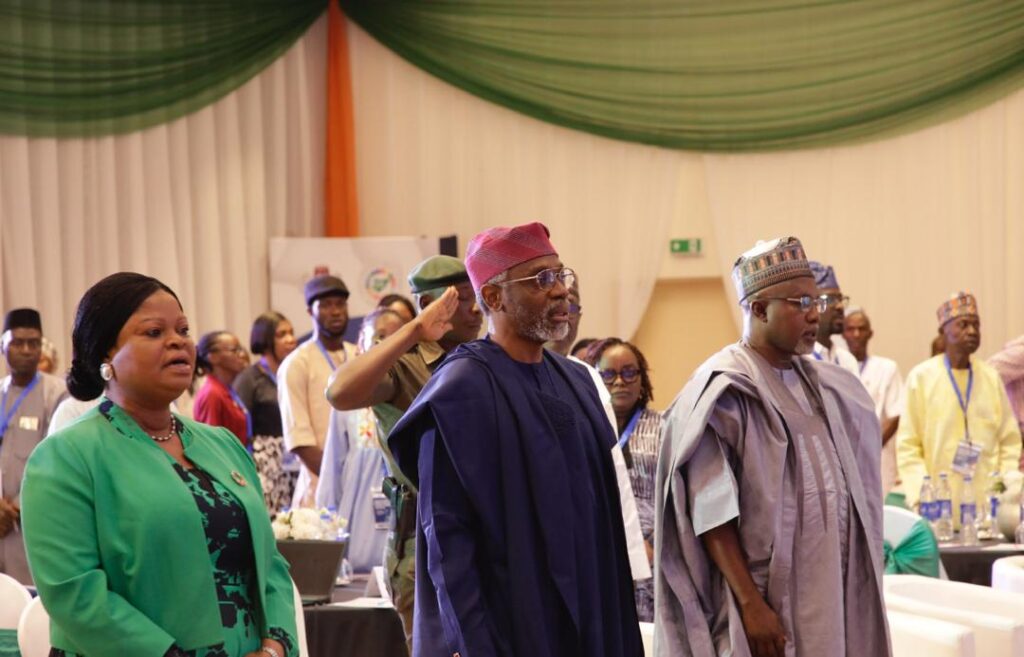The Federal Government has reaffirmed its commitment to accelerating the implementation of the Sustainable Development Goals (SDGs) with the validation of Nigeria’s 2025 Voluntary National Review (VNR), the launch of the Nigeria SDGs Progress Report 2024, and the unveiling of the Inclusive Data Charter (IDC) Action Plan.
The milestone event, held in Abuja, brought together senior government officials, development partners, civil society actors, academics, and representatives of vulnerable groups, exemplifying a robust participatory governance model.
Chief of Staff to the President, Femi Gbajabiamila, in his keynote address, emphasized the importance of internal strategies to address Nigeria’s development challenges amid shrinking global multilateral cooperation.
“In a shrinking multilateral space, we must look inwards for sustainable solutions to our economic, social, and environmental challenges,” Gbajabiamila said.
He reiterated the centrality of the SDGs as a strategic framework and praised Nigeria’s consistent participation in the VNR process—having previously conducted reviews in 2017 and 2020—as a demonstration of the country’s steadfast commitment to the 2030 Agenda.
He lauded the Senior Special Assistant to the President on SDGs, Princess Adejoke Orelope-Adefulire, for her leadership and coordination of the SDGs agenda, particularly the 2025 VNR process, which followed six regional consultations across Nigeria’s geopolitical zones in March. These consultations assessed progress, identified implementation gaps, and informed the national submission ahead of the United Nations High-Level Political Forum (HLPF) in July.
Gbajabiamila called on ministries, departments, agencies, development partners, the private sector, academia, and civil society to deepen collaboration and mobilize resources to ensure that no Nigerian is left behind in the country’s sustainable development journey.
He also reaffirmed the Tinubu administration’s unwavering commitment to the SDGs, describing sustainable development as a core pillar of the Renewed Hope Agenda.
Delivering her welcome address, Orelope-Adefulire underscored Nigeria’s sustained resolve to achieve the SDGs nearly a decade after their adoption at the 70th UN General Assembly.
She emphasized the need for urgency, citing the 2024 UN SDGs Progress Report, which revealed that only 17 percent of global targets are on track, with developing nations and vulnerable populations most affected.
“Lack of progress towards the SDGs is universal, but developing countries and the world’s poorest people are bearing the brunt,” she said.
She highlighted the importance of the VNR process as a key element of the HLPF’s review mechanism, which fosters national-level transparency and accountability.
Nigeria’s 2025 VNR, she noted, was informed by inclusive consultations that engaged persons with disabilities, youth, and children, reflecting a whole-of-government and whole-of-society approach.
In a goodwill message, United Nations Resident Coordinator in Nigeria, Mohamed Malick Fall, commended the Federal Government for its inclusive and consultative VNR process and reaffirmed the UN’s continued technical and financial support.
“With less than five years remaining, the SDGs are globally off track. But Nigeria’s participatory approach gives us hope that the course can still be corrected,” he said.
Fall also highlighted Nigeria’s inclusion among the 39 countries set to present their VNRs at the 2025 HLPF, emphasizing the global relevance of Nigeria’s efforts.















